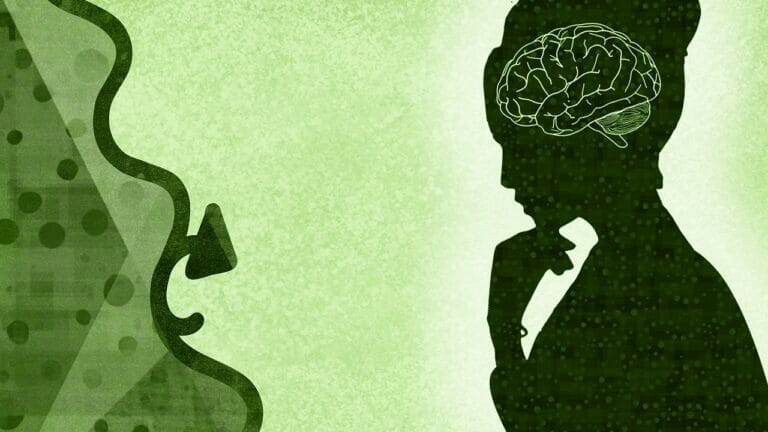Can EMDR help if I don't remember my childhood?
You know you feel pretty anxious and unhappy today, but you can’t pinpoint anything from your childhood to make you feel that way. In fact, you have very few memories of childhood at all. How can EMDR help a person with few memories of the past?

I have been practicing EMDR for nearly 15 years and most sessions with clients begin one of two ways. The client tells me that they really had a good childhood, they were well cared for, and their parents are good people. Or the client tells me they know things were tough in the past, but they don’t remember much about it and they’ve been fine, other than the anxiety or depression that brought them into therapy.
Few memories does not equal no memories
There are a number of reasons why adults have few memories of their childhood. I’ll go over a few of them here. However, most of the time people have some memories of their childhood, even if they seem bland, insignificant, or irrelevant to their present day symptoms. Barring a brain injury or full amnesia, most adults are aware of elements of their past but may not be able to connect the dots between the past and the present day. A well-trained therapist with an understanding of attachment and child development can help you make sense of the few memories you have. A well-trained therapist will also never suggest memories or imply that there is something you’ve forgotten.
With the right questions, we can help you tap into the emotional memories that shaped who you became today. For instance, many people wouldn’t be sure what to say if asked, “What were you like at 8 years old?” But we might get much more information by prompting, “Tell me which parent you felt closest to as a child” or “What would you do when you were afraid / upset / sick as a child.”
Many people can tell childhood stories for days, but you can only think of one or two
Different people have differing capacities to store memory. Additionally, when a childhood is less than ideal, the child’s brain can store memory differently. For a child often in a state of “fight or flight,” the brain is activated in a way that changes how memories are stored. In adulthood, this can look like a person who simply doesn’t remember much about the past. Fight or flight for little children doesn’t always come as a result of significant accidents and disasters; children are often powerless in their environment and can feel unsafe, insecure or threatened in circumstances that are benign for most adults. For an adult who suffered significant abuse or neglect, it’s likely that childhood memories are stored in the emotional part of the brain and may not be accessible.
Dissociation protects the child from their pain and lack of safety
Another common cause for limited memory is the process of dissociation from the experiences. Children often do not have the option to “flee” or “fight” when threatened. Instead, they freeze in the moment and dissociate or mentally detach from the emotion of the experience. Again, the experience may be a parent who is harsh, critical, or rejecting enough to make the child wonder if they are loved, wanted, or safe. Even if the parent expresses love for the child at other times, repeated experiences like this can create a blueprint on the child’s brain about who they are in the world. When the child can’t fight the parent, because they love and depend on them, or run from the parent, because their is nowhere to go, the child will likely withdraw into their mind. As safety is created in therapy as an adult, the memories may become more vivid and clear. Rarely are the memories so deeply repressed as to surprise the client. Instead, it’s like somebody turned the lights on in a dim room and the memories become clearer.
Preverbal memories don’t have words
For events that occurred before you had language development, you may not be able to provide a narrative report of those memories. In fact, you may not have conscious realizations of these events. These clients often report a felt sense of being alone in the world, not good enough, unsafe, etc. Traumatic memories are stored in the part of the brain that is separate from the language portion of the brain. This can feel especially confusing when preverbal memories are a source of trauma. However, even with memories that can be described, the felt sense, emotions, body sensations, and beliefs about self are equally as important as the narrative memory in resolving the present symptoms that are linked to trauma.
If my memories are fuzzy, limited or difficult to access, how can EMDR therapy help?
Unlike many talk therapy modalities, EMDR utilizes emotions, beliefs about self, and body sensations to access the memory networks. A skilled EMDR clinician with a foundation in attachment theory and childhood development can help you organize the memories you have and explore whether there is a connection to present day symptoms. Often, adults who tell me they don’t have many memories are able to recall details that are incredibly significant moments in their childhood. A person does not need vivid memories or extensive memories to deepen their insight into their adult self. With a skilled therapist as your guide, your limited memories are likely more than enough to proceed with EMDR.
EMDR therapy can help adults suffering from anxiety and depression make sense of their symptoms and feel better. We would love to help you learn more about how EMDR therapy might help you feel better too. Call us today for a free 15 minute phone consultation. To learn more about EMDR Therapy and how Skylands Wellness can help, click here.




